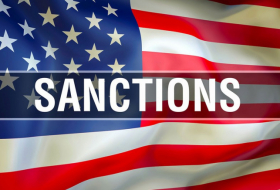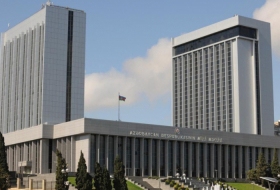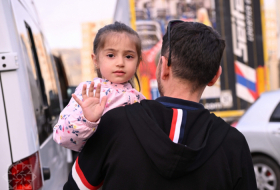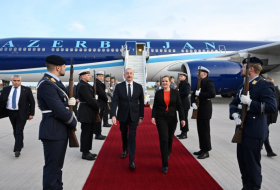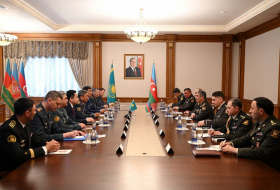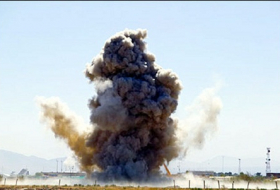An ‘unfrozen’ conflict in Nagorno-Karabakh
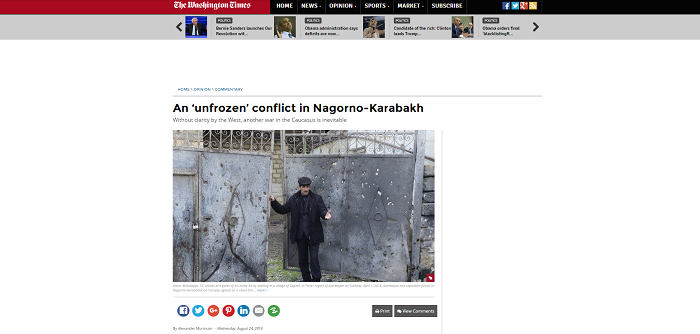
Alexander Murinson, senior fellow at the Begin-Sadat Center and Israeli Bar Ilan University published an article on the Nagorno-Karabakh conflict between Azerbaijan and Armenia in Washington Times.
According to the article, Satanovsky, who is also the head of Russian Institute of the Near East, visited the separatist region (in contravention of international law) in mid-June.
“As I understand it, the issue that Karabakh is part of Azerbaijan, in terms of military logic and from the standpoint of practical politics is completely closed,” Satanovsky said.
“This position expresses Russia’s persistent disregard for international law,” Murinson said.
“It is galling in the context of Russia’s membership in the Organization for Security and Cooperation in Europe (OSCE) Minsk Group, the group tasked with resolving the now not-so frozen conflict,” Murinson said.
“This should raise international concern and calls for a diplomatic response from Washington and the other members of the Minsk Group,” the author added.
“Given this caused a major destabilization in the South Caucasus, critical for Western Europe’s energy security, it is imperative to put Moscow on notice that the West is aware that the hostilities unleashed by Armenia could not have transpired without at least their tacit approval,” he said.
“Compounding this, a serious escalation of the military conflict over Nagorno-Karabakh in April prompted Armenian nationalists to raise the specter of recognition in an attempt to unilaterally change its international status,” the article said. “Armenian MPs initiated a bill to recognize independence, and the country’s president indicated he recognizes the independence of Nagorno-Karabakh.”
According to the article, in the aftermath of hostilities, Yerevan set the stage for recognition of Karabakh as a possible scenario as a deterrent to further Azerbaijani military successes, but later seemingly in retreat and under international pressure, emphasized the negotiation process, and Armenia’s “hope for a peaceful settlement.”
“Meanwhile, Baku responded that recognition of the separatist regime would cause a new war,” the article said.
“Azerbaijan will no longer hold any negotiations with Armenia over Karabakh if it dares to provide official recognition of its independence in defiance of the international community,” he said. “In addition, Turkey’s government unequivocally supported Baku’s position.”
“Let us look at the hard facts and clarify the status of Nagorno-Karabakh as an illegally occupied territory by the Armenia-backed military forces,” the author said.
According to the article, the U.N. Security Council, U.N. General Assembly, the Council of Europe and other international organizations do not recognize the self-proclaimed Nagorno-Karabakh Republic.
“All these international bodies have repeatedly expressed support for the territorial integrity of Azerbaijan,” the author said. “This position is enshrined in the relevant resolutions of the United Nations.”
According to the article, in addition, the U.N., NATO, EU, Council of Europe, Organization for Security and Cooperation in Europe, Organization of Islamic Cooperation, and Organization for Democracy and Economic Development do not consider election held in Nagorno-Karabakh to be legitimate.
“In March 2008, the member states of the U.N. adopted a resolution recognizing the existence of the Azerbaijani occupied territories,” the article said. “The U.N. resolution demands an immediate, complete and unconditional withdrawal of all Armenian forces from all occupied territories of Azerbaijan.”
“Russia, the United States and France voted against the resolution,” the article said. “These three countries serve as co-chairmen of the OSCE Minsk Group.“
`If the members of the trans-Atlantic community (the United States and France) continue their “muddle through” approach toward this “unfrozen” conflict, another war in the Caucasus is inevitable`, he concluded.
Click here to read an original article.








